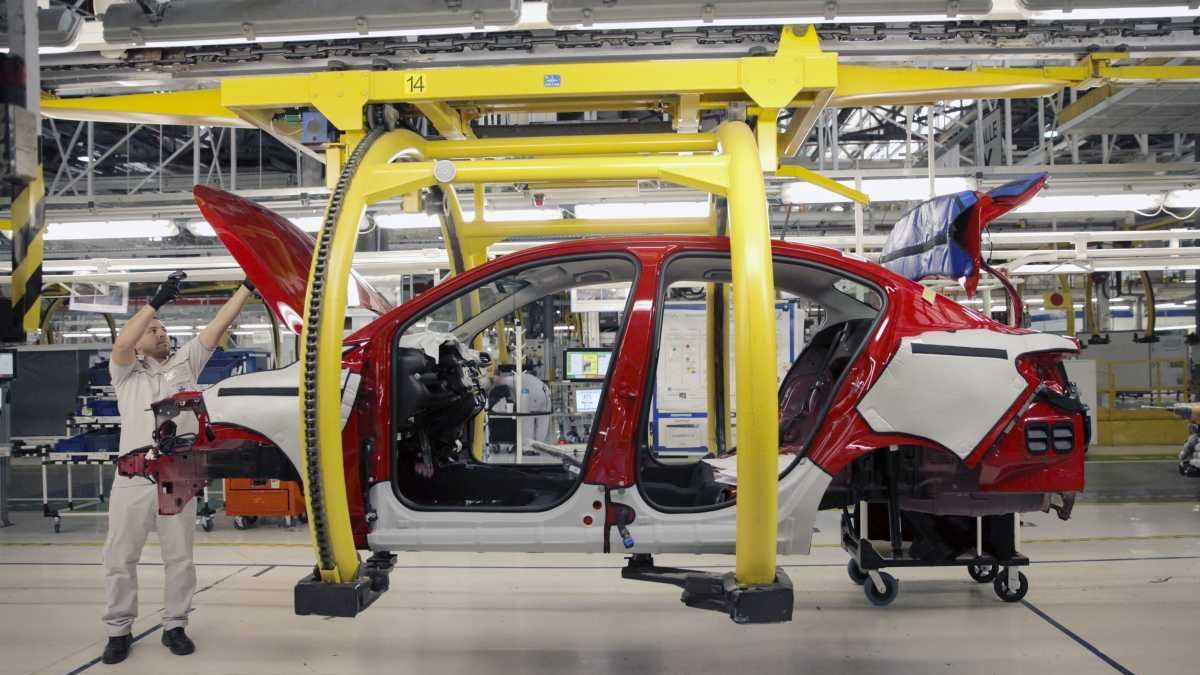The future came a time ago. Companies will not wait for the facts to be consumed. For these hours, Firms in the industrial and construction sector are already rethinking their structures facing the new scenario. President-elect Javier Milei’s idea of ending public works raises questions among concessionaires who still have valid contracts. Import payments that are virtually stopped, a decline in demand and trade opening pose a difficult scenario for manufacturers.
These are turbulent times in the business world.. Everyone anticipates that the shift in economic policy will be very pronounced and that it will be necessary to adapt to the conditions that are coming. Ambit could account for dozens of board meetings in firms of different caliber to recalculate their equations. The sectors that will have to adopt changes more quickly are the industry and construction.
It is also unclear what will happen to the works carried out by provincial governments, threatened with losing transfers, and even less what will happen to those that are financed via credits from multilateral organizations. “If we don’t get paid, we can’t keep the workers.“, he summarized, in dialogue with Ambit, the owner of a firm that employs more than a thousand people. Along these lines, he maintained that “all possibilities are open.”
The constant allusion of the president-elect to the system that governs Chili, does not help to clear up doubts. The 2024 budget of the neighboring country foresees an investment of 4.1% of GDP in the matter, something that sounds quite incompatible with the “chainsaw plan”. Furthermore, a report from the Infrastructure Policy Council shows that from 2005 to date the role of the State was always more important than that of the private sector when it came to financing initiatives, even reaching 90% of the total in several years.
Investment in infrastructure.jpeg
What will happen to the industry?
On the side of the industryin the short term The biggest concerns are what will happen with import payments, which are virtually stopped, and the commercial debt, which is around US$47,000 million. Although in this last point the majority is between subsidiaries and parent companies. In that case, the margin for negotiation is much wider than when it comes to a local SME with a foreign supplier.
In the medium term, they wait for other types of signals to understand what will happen with two fundamental variables: domestic demand and trade openness. In the first case, expectations point to a strong contraction as a result of fiscal adjustment that the La Libertad Avanza government plans to carry out. As for the second, Milei has already said that she plans to advance in total liberalization, something that worries sensitive sectors.
In the libertarian environment they qualify the problem by pointing out that At first the exchange rate will be so high that it will function as a protection even for the least competitive items. This Wednesday, the Argentine Toy Chamber was the first among industrial companies to issue a warning: the opening must be accompanied by prior reforms.
“The Argentine toy industry has the same productive capacities as the best factories in the world, with cutting-edge technology and qualified human resources to be able to compete with any country, but on equal terms,” says the official statement. At the same time he highlights: “Currently the market is oversupplied with foreign products of dubious origin that do not comply with safety standards, which is why they represent a danger to the health of our children.”
For the economist specialized in productive development Leandro Mora Alfonsin “The concern of companies due to the uncertainty about the speed of stabilization and whether or not it will have shock absorbers is logical.” In that sense, he considered that “on the demand side, A potential recession forces us to rethink business plans” and that “in public works suppliers (construction materials, painting, associated services) it is logical that statements such as the recent ones generate anxiety.”
Regarding costs, the impact of a new devaluation, which although in some segments has already been discounted, always implies a boost. “To the extent that there is greater clarity and signals from the President-elect, there will be greater clarity to make decisions about business plans and evaluate steps to follow,” said the economist.
Both industry and construction are two fundamental sectors for employment. Today more than 1,200,000 people work in the first and in the second some 500,000 work directly, of which 250,000 are dedicated to private companies that operate in public works. Employers are already on alert.
Source: Ambito




